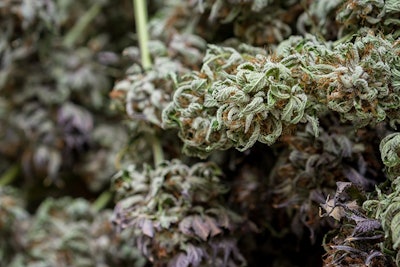
Top photo: © wollertz | Adobe Stock
This week, a business association called the Craft Cannabis Alliance started working with Oregon legislators to explore the possibility of cannabis exports to other legal-marijuana states, which could take effect by 2021. Elsewhere, in Michigan, more than 70 unlicensed medical marijuana dispensaries were closed after a state-imposed Dec. 31 licensing deadline.
Here, we’ve rounded up the 10 headlines you need to know before this week is over.
- Federal: The newly legal hemp industry is indefinitely paused during the government shutdown, as the U.S. Department of Agriculture is unable to approve state hemp program regulations and the FBI is unable to conduct required background checks. At issue, on a political level, is whether President Trump will sign a spending bill that excludes funding for a U.S.-Mexico border wall. Read more
- Oregon: Marijuana could take the next step toward joining pinot noir, craft beer and hazelnuts on Oregon's list of famous exports, under a proposal likely to go before state lawmakers in the new year. The Craft Cannabis Alliance, a business association led by founder and executive director Adam Smith, is working with legislators to let Oregon start exporting cannabis to other legal-marijuana states by 2021. Read more
- Ohio: While the first legal sale of medical marijuana didn’t happen in 2018 as Ohio’s law allowed, officials say the slow-to-develop program is ready to deliver. CY+, a dispensary in Wintersville, received its certificate of operation last month, and another 55 dispensaries have provisional licenses. The first sales are tentatively planned for Jan. 15. Read more
- At the tail end of 2018’s busy M&A season, Ohio-based Green Growth Brands launched a $2.1-billion (C$2.8-billion) bid to acquire Canadian cannabis producer Aphria Inc. The all-stock deal would provide Aphria shareholders with 1.5714 common shares of Green Growth in exchange for each Aphria share. Read more
Subscribe to M&A Weekly for free here.
- Indiana: Gov. Eric Holcomb is not willing to consider marijuana legalization in Indiana. The Republican said he’s opposed to both medical and adult-use legalization because it’s still illegal at the federal level. Read more
- Oklahoma: Oklahoma is allowing people who don't live in the state to apply for temporary medical marijuana licenses. This temporary license offers people with a valid marijuana license from another state to buy, use and even grow medical marijuana in Oklahoma. Read more
- Michigan: Michigan forced more than 70 unlicensed medical marijuana dispensaries to close after a state-issued Dec. 31 licensing deadline, severing many patients’ access to their medication. The state will hold its next monthly licensing board meeting Jan. 16, where it will presumably issue more licenses, but patients who have been using dispensaries that have been shut down could be forced back to the illicit market for their medicine. Read more
- At least 80 Michigan communities have banned or are moving to ban recreational marijuana retail stores and related businesses, a swift response from local governments in the month and a half since voters chose to legalize marijuana in Michigan. The Michigan Regulation and Taxation of Marihuana Act took effect Dec. 6. Read more
- California: A federal judge has ruled that a group of Petaluma neighbors cannot sue a cannabis company and its lead grower under a federal racketeering and corruption law because bad odors and noise are nuisances that don’t cause the kind of measurable financial losses required to pursue the case. The Dec. 27 ruling halted what may have been the first attempt in California to use the civil portion of the Racketeer Influenced and Corrupt Organizations Act, passed in 1970 to combat the mafia and organized crime, to stop marijuana cultivation since it was legalized for recreational use. Read more
- Nevada: On Jan. 1, Nevada’s Marijuana Enforcement Division enacted a new regulation that requires all single-serving cannabis edibles and infused products be labeled with a THC stamp or mold in an effort to increase public safety. The stamp identifies a gummy or a baked good as a cannabis-infused product, safely separating it from non-cannabis-infused products. Read more
























